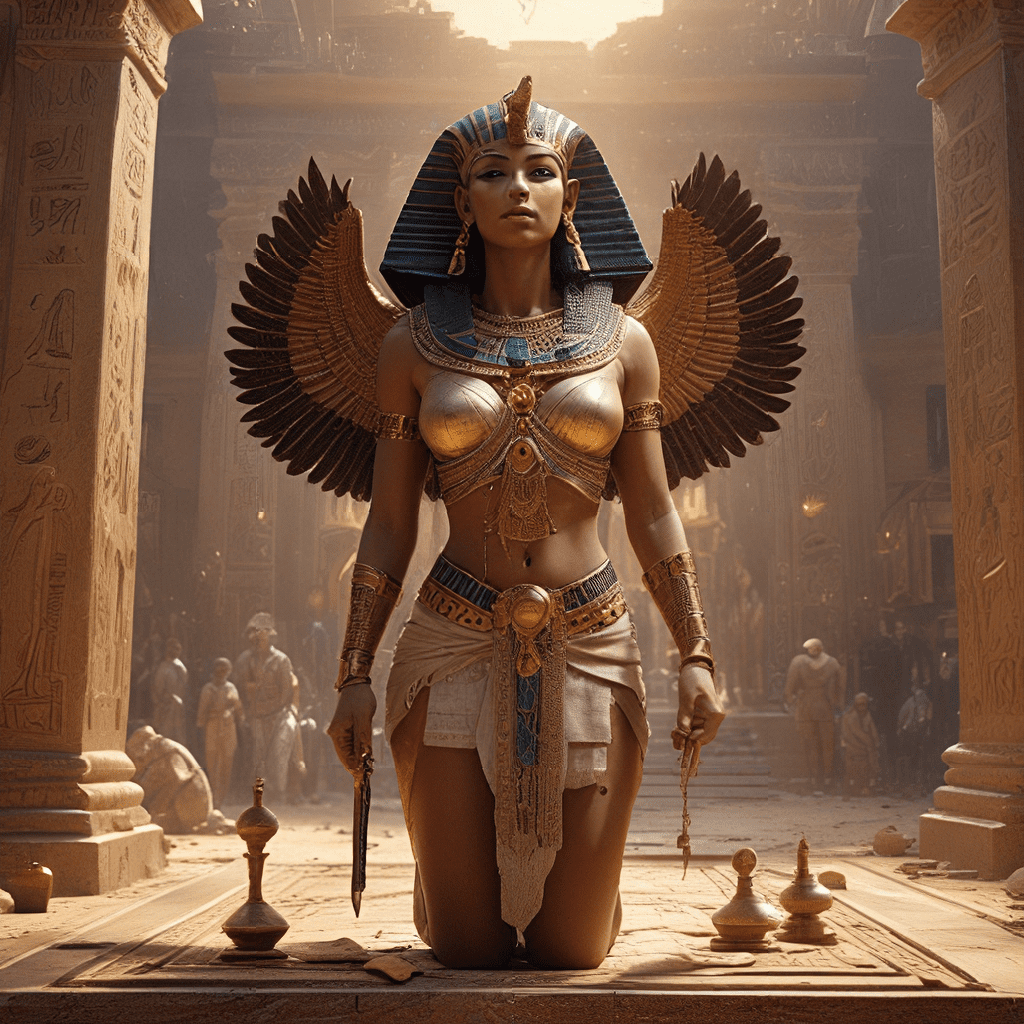The Weighing of the Heart: The Key to the Egyptian Afterlife
In ancient Egypt, life was not merely a journey on Earth but a prelude to an eternal existence in the afterlife. The Egyptians believed in a world after death, where they would be judged and rewarded or punished based on their deeds in life. The most crucial aspect of this journey was the Weighing of the Heart ceremony, a pivotal moment that determined the fate of every soul.
1. The Importance of the Afterlife in Ancient Egypt
The afterlife held immense significance for the ancient Egyptians. They believed that upon death, the soul would embark on a perilous journey to the Underworld, a realm ruled by Osiris, the god of the afterlife. To ensure a favorable outcome, the Egyptians meticulously prepared for their passing, ensuring their bodies were preserved through mummification and their tombs filled with provisions for the journey. The goal was to reach the realm of the blessed, a paradise where the deceased could live eternally in peace and happiness.
2. The Journey to the Underworld: A Dangerous Passage
The journey to the Underworld was arduous and fraught with dangers. The deceased soul, guided by the jackal-headed god Anubis, had to navigate treacherous paths and confront monstrous creatures. One of the most fearsome encounters was with Ammit, a beast with the head of a crocodile, the body of a lion, and the hindquarters of a hippopotamus. This creature was tasked with devouring the souls deemed unworthy of eternal life.
3. Osiris, Judge of the Dead and Ruler of the Afterlife
At the heart of the Underworld resided Osiris, the powerful god of the afterlife, who judged the souls of the deceased. His role was to determine whether they had lived a worthy life, upholding the principles of Ma’at, the divine order of justice and balance. Osiris, often depicted as a mummy-wrapped figure with a green crown, was believed to be the embodiment of resurrection and renewal.
4. The Weighing of the Heart: A Crucial Moment
The Weighing of the Heart was the pivotal moment in the journey to the afterlife. It was a symbolic ceremony, where the heart of the deceased was weighed against a feather, the symbol of Ma’at. The outcome of this weighing determined the fate of the deceased, deciding whether they were worthy of entering the afterlife or condemned to oblivion.
5. The Scales of Justice: Balancing Heart and Feather
The scales of justice, held by Anubis, were meticulously balanced to determine the fate of the deceased. The heart, representing the soul’s true essence, was placed on one side of the scale. On the other side, a single white feather, representing Ma’at, was placed. If the heart was lighter than the feather, it meant the deceased had led a virtuous life and would be granted eternal life in the afterlife.
6. The Role of Anubis, Guardian of the Scales
Anubis, the jackal-headed god, played a crucial role in the Weighing of the Heart ceremony. He was the guardian of the scales and the protector of the dead, responsible for guiding their souls to the afterlife. Anubis was believed to have a special connection to the deceased, as he was the embodiment of the underworld and the guardian of its secrets.
7. The Heart of Truth: A Symbol of Goodness and Purity
The heart, in Egyptian mythology, was not just a physical organ but a representation of a person’s moral compass and inner truth. It was believed to be the seat of emotions, thoughts, and intentions. The Egyptians understood that a true heart, free from wickedness and deceit, was the key to a successful journey into the afterlife. Their belief in the importance of a pure heart encouraged them to live ethical lives, striving for goodness and justice in all they did.
8. The Ammit, Devourer of the Impure
If the heart was heavier than the feather, it meant the deceased had led a life of evil, greed, or wickedness. They would not be granted eternal life and would be devoured by Ammit, the monstrous creature who represented the forces of chaos and destruction. This fear of Ammit served as a constant reminder to the Egyptians to live virtuous lives, avoiding the temptations of evil and striving for a pure heart.
9. The Rewards of the Afterlife: Eternal Bliss
For those who passed the Weighing of the Heart, the rewards were immense. They were granted eternal life in the Field of Reeds, a paradise where the deceased could spend their eternity in peace and happiness, reunited with their loved ones. This paradise was described as a place of beauty and abundance, where there was no pain, suffering, or hunger.
10. The Significance of the Weighing of the Heart: A Legacy of Morality and Justice
The Weighing of the Heart was more than just a mythical ceremony. It was a testament to the Egyptians’ deep belief in the importance of morality and justice. They believed that every action had consequences, both in life and in the afterlife. They strived to live virtuous lives, guided by the principles of Ma’at, ensuring their hearts were pure enough to pass the judgment of Osiris and attain eternal life. The legacy of the Weighing of the Heart continues to inspire us today, reminding us of the importance of living ethical lives and striving for goodness and justice in a world that often seems chaotic and unpredictable.




